


I was born on 18th September 1900 at Richmond in Surrey. My father was employed there as a butcher, but in about 1906, he purchased a business at 33 High Street, Beckenham, Kent and my first recollection of life was when we arrived at that address and I was intrigued by the seat around the bay window in the kitchen. The house had no garden and the back was asphalted with 3 horse stables which we now no longer used for the purpose. On the ground floor was the shop, the dining room, kitchen, scullery and toilet. On the first floor were the sitting room, 2 bedrooms, bathroom and toilet. On the top floor were three more bedrooms. My parents had the large bedroom on the 1st floor, and I had the smaller. My sister Ethel and a maid had bedrooms on the top floor. Ethel and I went to the Elementary School, which was only about 100 yards away up Church Hill and near the parish of St George's. My parents attended the church and Ethel and I also joined the Sunday School on Sunday afternoons. A few years later, I think, a small daughter church was opened at Clock House about a mile away towards Penge at which my parents attended and were in the choir. The parson in charge was the Rev. Ritson who used to preach very long sermons up to 40 minutes.
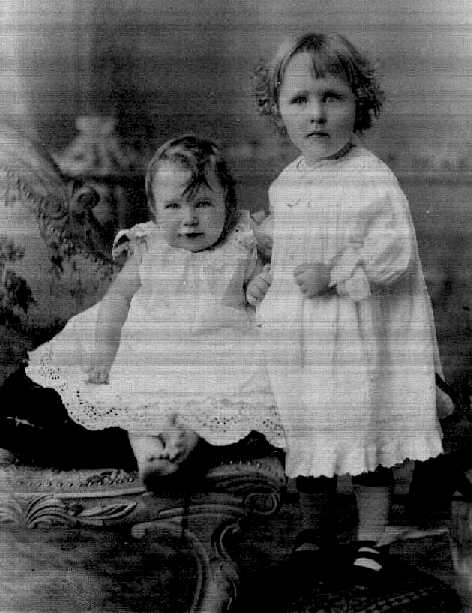
George (left) and Ethel about 1902
When I was 10 years old I passed a scholarship exam for the Beckenham County Grammar School at Clock House and started there in 1911. The Head Master was Mr. Watts. One of the masters at the elementary school was a Mr. Rees who was also a musician and lived in Cromwell Road and where Ethel and I walked and had piano lessons once a week for about 4 or 5 years. I am afraid I did not practice very much and made slow progress.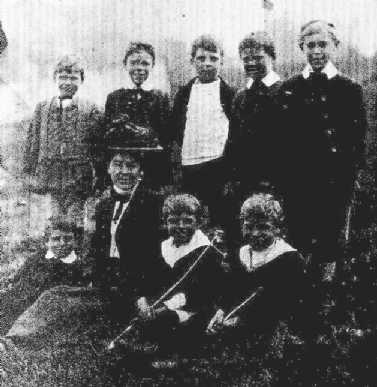
Fig 2: A Sunday School outing around 1908: George's mother is at the front
When I was about 11 years old I joined the choir at St Georges, which consisted of at least 20 boys and about 24 men. The organist was Mr. G. F. Hall FRCO who was an excellent choirmaster and organist and on Sundays we want Choral Matins at 10.30 am, Choral Eucharist at 11.30am and Evensong at 6.30pm. The music for the Choral Communion was always sung to a setting and included works by Gounod (Messe Somelle at Christmas and Messe de Paques at Easter) and also Mozart in Bb, Schubert in G as well as settings by Stanford, Stainer, Harwood, Smart and many others. At Easter and Christmas we were assisted by 2 well-known and leading trumpeters and a timpanist so it became quite an occasion with a crowded congregation. I made rapid progress in the boy's choir and was soon promoted to the 1st Chorister on the Cantoris side. I also occasionally sung solos but the normal soloist was Taffy Williams who had a glorious voice. We also had a professional tenor in the choir and 3 male altos. When my voice broke when I was about 15 years I continued in the choir as an Alto and later as a Bass.
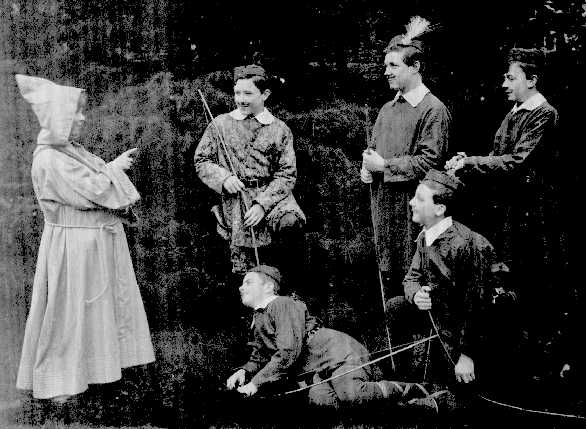
Fig 3: The Boy Scouts St George's Beckenham, Panto: Robin Hood 1914, Jimmy Drummond, George Windsor, George Drummond, Taffy Williams Seated: Tony Laurence and Norman Burrows
As a young boy I spent a lot of spare time playing with wooden bricks and lead toy soldiers on the table in the kitchen. In the summer days I often played at shooting goals with a ball in the back yard. I was also at the time very friendly with a boy about my own age - Willie Overton - whose father ran a milk shop about 100 yards away.I had a very enjoyable time at the County School although the latter years were during the 1st World War. I did well at sports and was made head Prefect of on of the four "Houses"; into which the school was divided. The houses competed against each other at sports: football, Hockey, Cricket and Tennis. Towards the end I also played in the School 1st XI at Football and Cricket. I also wan the School Championship Cup for Swimming. During my last year 1917 I went in for the Matriculation Exam which consisted of five subjects in which you had to pass in allow of them to get your "Matriculation";. Unfortunately I failed in French and so was unsuccessful.



Fig 5: George's bull-nosed Morris and caravan on holiday
About this time I also applied to join the Royal Choral Society and joined them after a successful audition and stayed 3ith them for nearly 50 years until 1969. Sir Frederick Bright was the first conductor but was getting old and retired in about 1924. For 3 seasons we had various guest conductors so that I had the pleasure of singing under all the leading conductors including Sir Edward Elgar with whom I sang Gerontius. Dr Malcolm Sargent was appointed permanent conductor in 1927 and continued until his death in 1967. He was a great conductor with an electric personality and during that time the choir became very famous and the Albert Hall was filled for most of our concerts. After his death we had guest conductors for a year but then Win Morris was appointed but after a season I could stand him no more so I resigned. He had no magic or inspiration and wasted a lot of time with physical exercises at rehearsals.
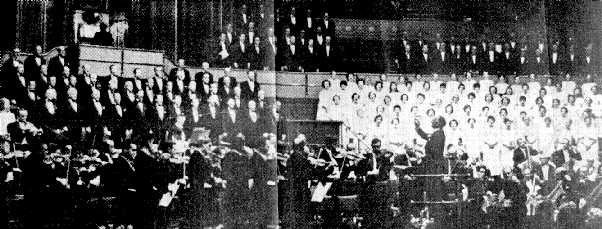
Fig 6: Malcolm Sargent and the Royal Choral Society
To return to 1920, about that time a Concert Party was formed by Mr. Walter Bell who sang tenor in the Parish Church choir and I was invited to join as a baritone. Ken Bell - son of Walter - who I know at school was the pianist and an excellent one, Mildred Pritchard a very good soprano, Walter Bell was tenor, Clifford Brewster - also a school mate of mine - was comedien and Maude Dinsdale was an excellent soubrette. Her husband Aubrey Secretan was producer and we gave many concerts very successfully for about 3 years when Cliff Brewster became ill and before long we ceased. Whilst we lasted we were a most happy and successful party.

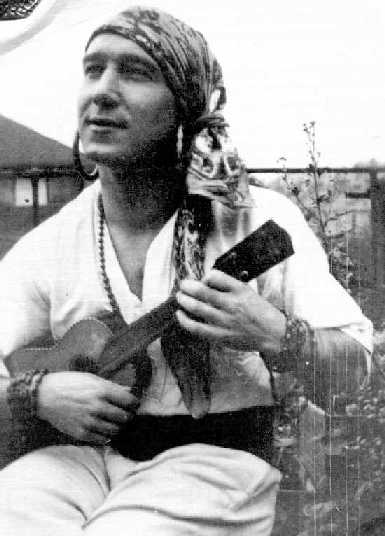

Fig 7: The Magpies Concert Party
To go back to about 1920. I started to have organ lessons from Mr. Hall at Beckenham Parish Church and soon made such good progress that after a year he waived my lesson fees and in return I became his deputy. This involved playing for a children's Choral Eucharist at 9.30 am every Sunday when the music was always sung to Merbecke's setting and also for the Children's Sunday afternoon service at 3.00 pm. I also played for all services whilst Mr. Hall was on holiday during the whole of August, which meant a total of 5 services each Sunday and Evensong each weekday except on Saturdays at 5.30pm.

Fig 8: St Mary's Shortlands Church Choir
In 1923 a vacancy for organist and Choirmaster occurred at St Mary's Parish Church at Shortlands - about 2 miles from Beckenham and on Mr. Hall's recommendation I was appointed on a three months trial after which I was accepted. The organ was a 3 manual, tracker action, electrically pumped one made by Hills -a very reputable firm at that time. The choir at first was only fair but I was quickly able to raise its size and standards to about 16 boys and 14 men which was the maximum which the stalls could accommodate. We had a Choral matins and Evensong each Sunday when the canticles in each case were usually sung to settings and during Passion Week we generally did a Cantata such as Stainer's "Crucifixion"; and Harold Moor's "The Darkest Hour", which became very popular and attracted large congregations. I also managed to raise the choral standard particularly of the boys and to produce a succession of excellent boy soloists during the 15 years I remained there. After a few years arrangements were made for the organ action to be changed to tabular pneumatic which was very successful and a great improvement as the touch was as light as a piano. The Vicar was Canon Knight who was a real gentleman of the old school who gave me a completely free hand in all the music. It was a loss to the Church when he died about 10 years after my appointment. The congregation was rather posh. One of the Churchwardens was as "Sir"; and the other a Colonel and the turnout at Matins especially was always very good. After Canon Knight's depth we had a new vicar for about 4 years who was not musical but did not interfere and later another vicar who was musical - in fact he could play the organ - but I felt did not give me such support as I previously had. In 1939 I was married with a second child and I decided that my organists job prevented me from spending as much time with my family as I would wish, so I resigned much to the intense disappointment of the whole choir which whom I had always got on so well. I look back on the 16 years whilst I was organist, and choirmaster at St Mary's with nostalgic happiness. I should add that I sat and obtained my LGSM at the Guildhall School of Music where I had lessons from Mr. Wetton in July 1928 and my ARCO from The Royal College of organists in July 1930. To go back again to about 1922, I joined the Cedars Lawn Tennis Club whose ground with about five grass courts and a pavilion was at Elmer's End about 2 miles from my home at Beckenham. Mr. Walter Bell was the Secretary and Ken and Dalton Bell and Cliff Brewster were also members so we were able to make a regular foursome.

Fig 10: Ray and George near their office, and getting married at Shortlands on 1/7/1934.
In my job as a Clerical Officer in the GPO some vacancies in the Executive officer Grade appeared about 1930 and I was promoted to the grade. It involved transfer to the Postmaster's Balances Branch in the main Post Office building. At that time I become friendly with a Mabel Rayment who was know to colleagues as Ray. She worked on the same floor of the GPO as I did and in 1932 we became engaged and were married at St Mary's Church at Shortlands on 1st July 1933. Of course we had a full choral Service and I trained my boy soloist at that time Eric Eagles to sing "Where ere you Walk", by Handel. My tennis and concert party friend Ken Bell, who was also an organist played the organ for the ceremony and which was attended by many of the local congregation and will as our friend and all went extremely well. We later had a Social Gathering with refreshments for all at the Church hall in Shortlands village and later Ray and I left in our car for our honeymoon at a posh hotel overlooking the sea at Newquay where we had a wonderful time.
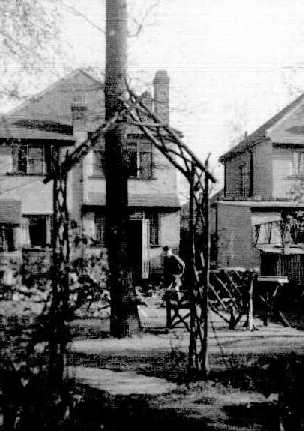
Fig 11: The house at 6, Hayes Chase where Ray and George moved after their marriage.
We had brought a very nice 3-bedroom detached house at 6, Hayes Chase, West Wickham. It was a new house and we had to organize the garden as well as the house. It was about 1 mile away from Bromley South Station from which I used to journey to London. Ray was very musical and sang and played the piano very well. She joined the Royal Choral Society until our first child Delia was born on May 1935. In June 1938 our son Colin was born and we both enjoyed and loved them both.
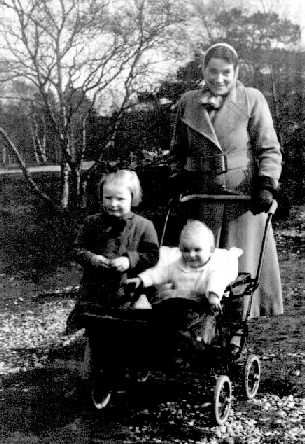
Fig 12: Ray with Delia and Colin on Shirley Hills
Copyright 2004 Colin Windsor : Last updated 5/10/2004